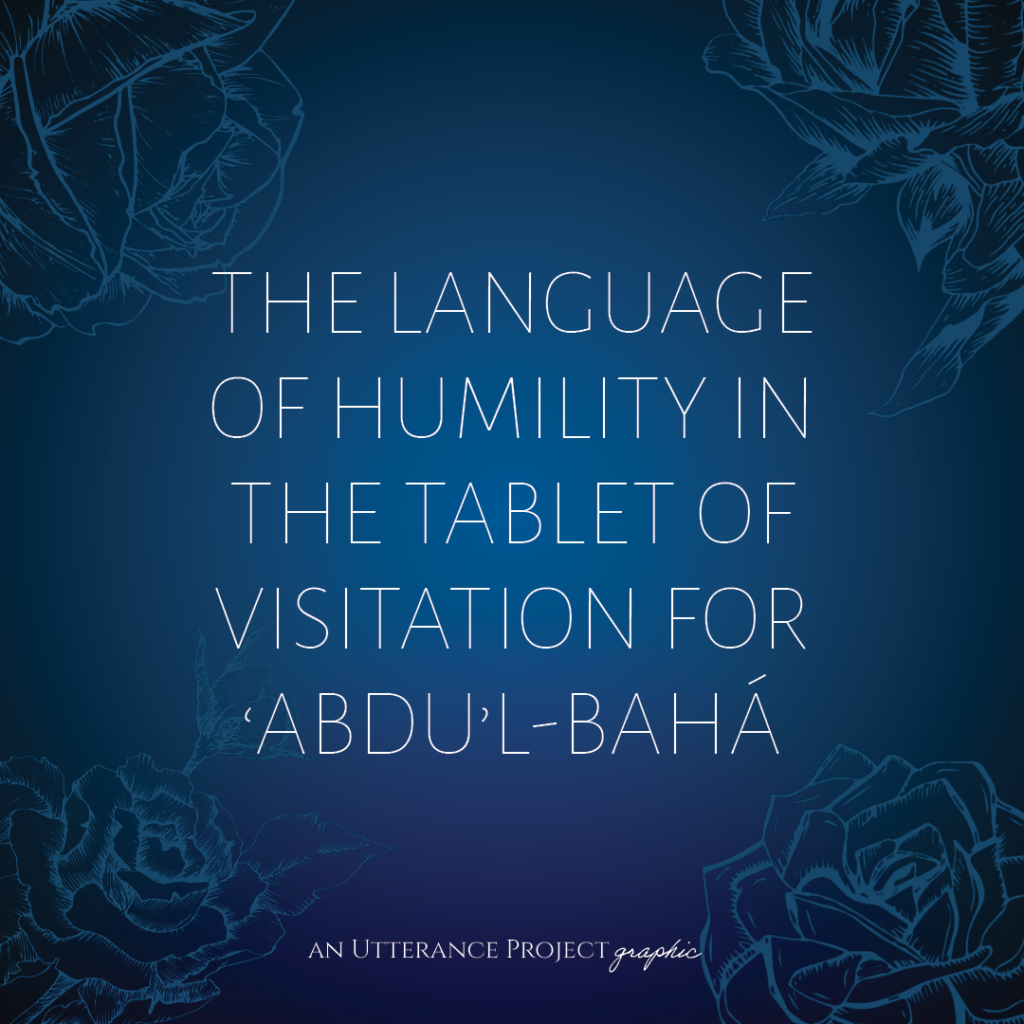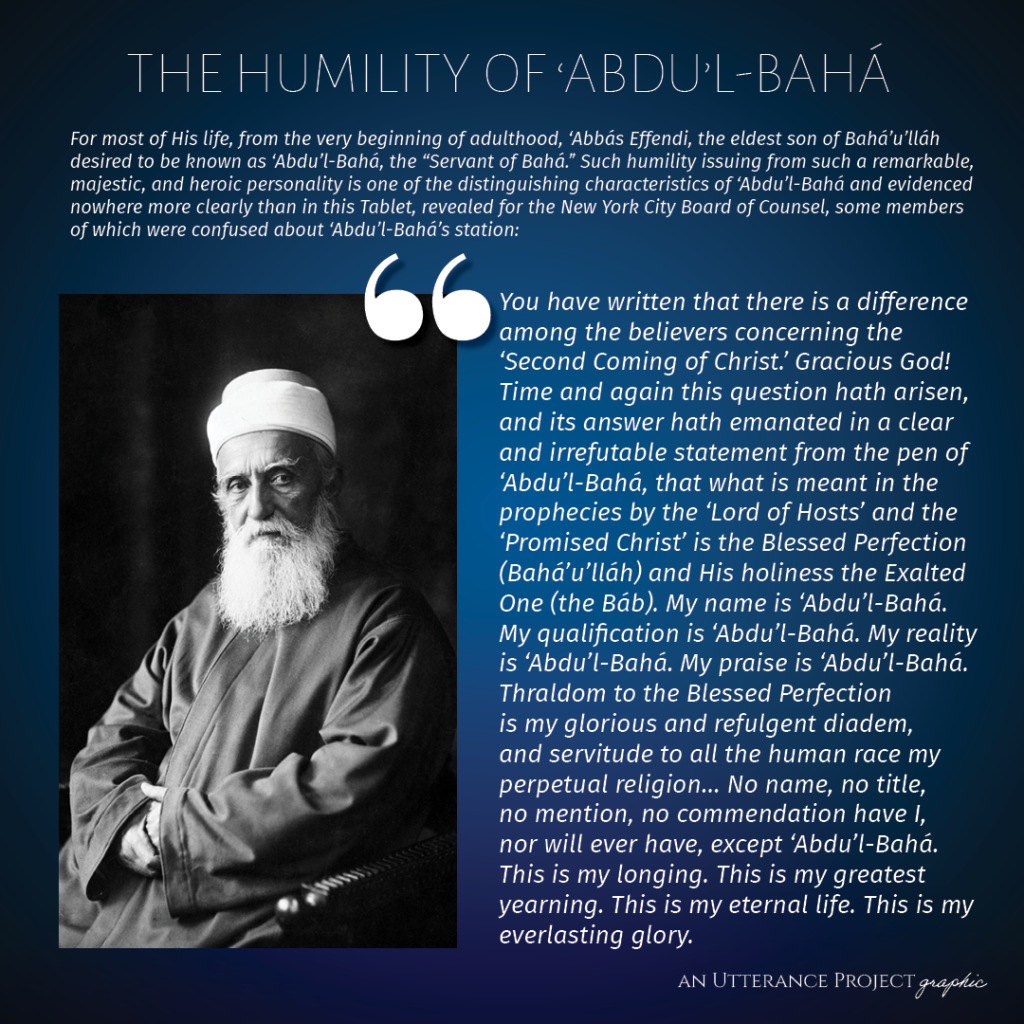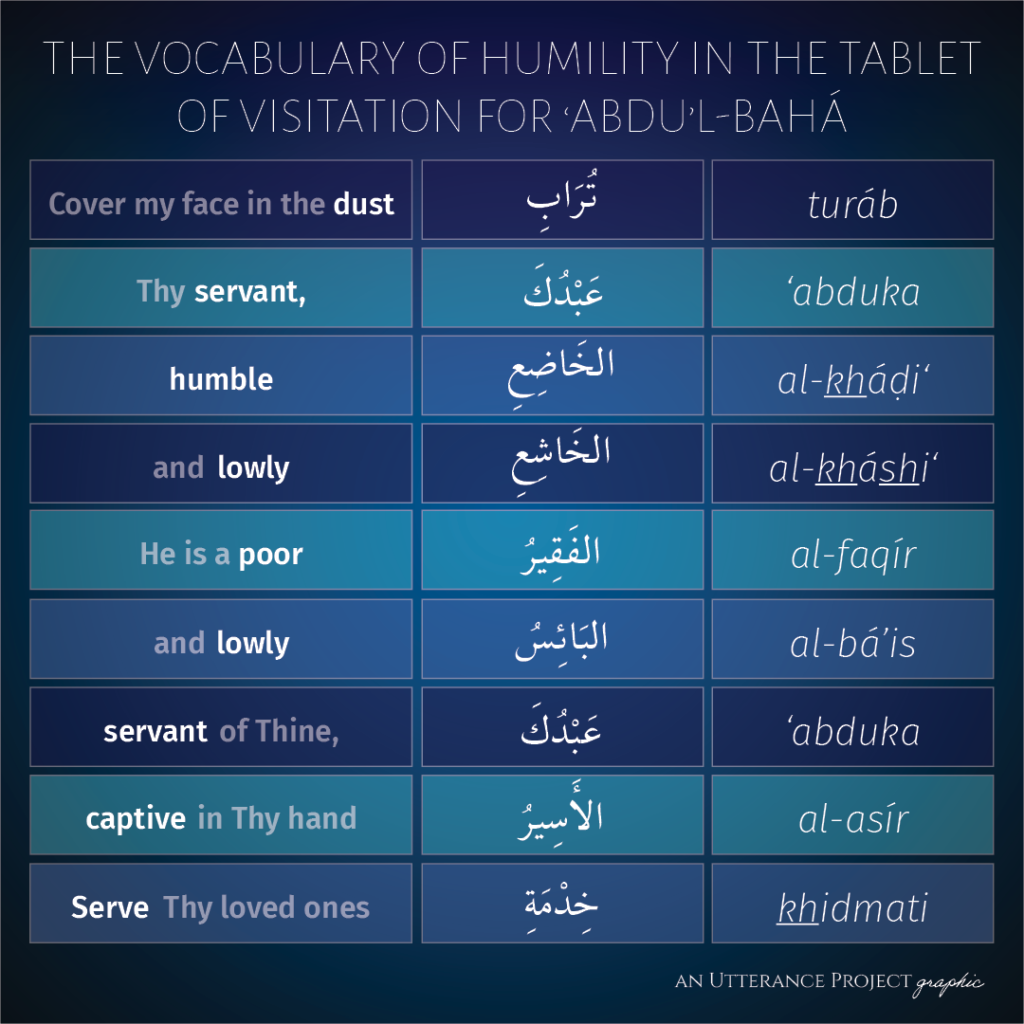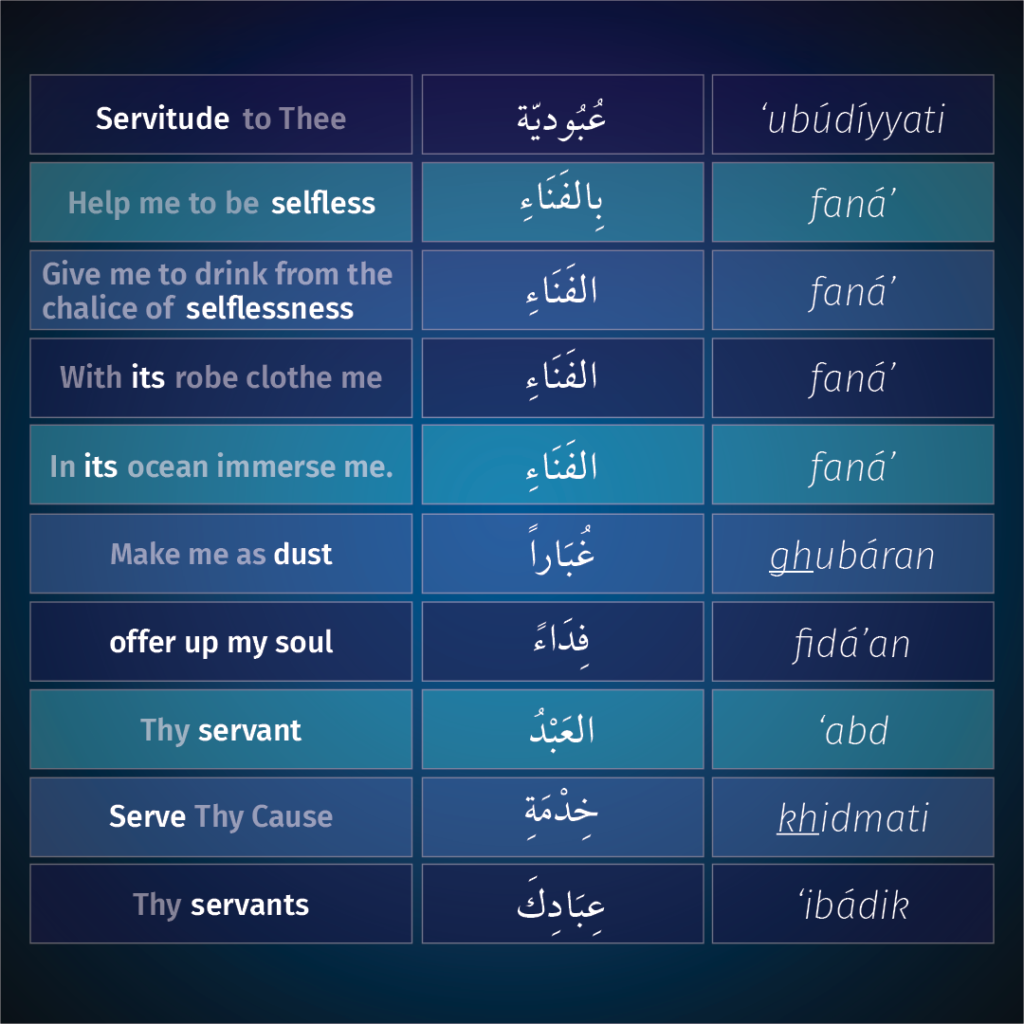He is the All-Glorious!
O God, my God! Lowly and tearful, I raise my suppliant hands to Thee and cover my face in the dust of that Threshold of Thine, exalted above the knowledge of the learned, and the praise of all that glorify Thee. Graciously look upon Thy servant, humble and lowly at Thy door, with the glances of the eye of Thy mercy, and immerse him in the Ocean of Thine eternal grace.
Lord! He is a poor and lowly servant of Thine, enthralled and imploring Thee, captive in Thy hand, praying fervently to Thee, trusting in Thee, in tears before Thy face, calling to Thee and beseeching Thee, saying:
O Lord, my God! Give me Thy grace to serve Thy loved ones, strengthen me in my servitude to Thee, illumine my brow with the light of adoration in Thy court of holiness, and of prayer to Thy Kingdom of grandeur. Help me to be selfless at the heavenly entrance of Thy gate, and aid me to be detached from all things within Thy holy precincts. Lord! Give me to drink from the chalice of selflessness; with its robe clothe me, and in its ocean immerse me. Make me as dust in the pathway of Thy loved ones, and grant that I may offer up my soul for the earth ennobled by the footsteps of Thy chosen ones in Thy path, O Lord of Glory in the Highest.
With this prayer doth Thy servant call Thee, at dawntide and in the night-season. Fulfill his heart’s desire, O Lord! Illumine his heart, gladden his bosom, kindle his light, that he may serve Thy Cause and Thy servants.
Thou art the Bestower, the Pitiful, the Most Bountiful, the Gracious, the Merciful, the Compassionate.
‘Abdu’l-Bahá
هُوَ الأَبْهَى
إِلهِي إِلهِي إِنِّي أَبْسُطُ إِلَيكَ أَكُفَّ التَّضَرُّعِ وَالتَّبَتُّلِ وَالابْتِهالِ وَأُعَفِّرُ وَجْهِي بِتُرَابِ عَتَبَةٍ تَقَدَّسَتْ عَنِ ادْرَاكِ أَهْلِ الحَقائِقِ وَالنُّعُوتِ مِنْ أُولِي الأَلْبَابِ أَنْ تَنْظُرَ إِلَى عَبْدِكَ الخَاضِعِ الخَاشِعِ بِبَابِ أَحَدِيَّتِكَ بِلَحَظَاتِ أَعْيُنِ رَحْمَانِيَّتِكَ وَتَغْمُرَهُ فِي بِحَارِ رَحْمَةِ صَمَدَانِيَّتِكَ أَيْ رَبِّ إِنَّهُ عَبْدُكَ البَائِسُ الفَقِيرُ وَرَقِيقُكَ السَّائِلُ المُتِضَرِّعُ الأَسِيرُ مُبْتَهِلٌ إِلَيْكَ مُتَوَكِّلٌ عَلَيْكَ مُتَضَرِّعٌ بَيْنَ يَدَيْكَ يُنَادِيكَ وَيُنَاجِيكَ وَيَقُولُ رَبِّ أَيِّدْنِي عَلَى خِدْمَةِ أَحِبَّائِكَ وَقَوِّنِي عَلَى عُبُودِيَّةِ حَضْرةِ أَحَدِيَّتِكَ وَنَوِّرْ جَبِينِي بِأَنْوَارِ التَّعَبُّدِ فِي سَاحَةِ قُدْسِكَ وَالتَّبَتُّلِ إِلَى مَلَكُوتِ عَظَمَتِكَ وحَقِّقْنِي بِالفَنَاءِ فِي فِنَاءِ بَابِ أُلُوهِيَّتِكَ وَأَعِنِّي عَلَى المُوَاظِبَةِ عَلَى الاِنْعِدَامِ فِي رَحْبَةِ رُبُوبِيَّتِكَ أَيْ رَبِّ أَسْقِنِي كَأْسَ الفَنَاءِ وَأَلْبِسْنِي ثَوْبَ الفَنَاءِ وَأَغْرِقْنِي فِي بَحْرِ الفَنَاءِ وَاجْعَلْنِي غُبَاراً فِي مَمَرِّ الأَحِبَّاءِ وَاجْعَلْنِي فِدَاءً لِلأَرْضِ الَّتِي وَطِئَتْهَا أَقْدَامُ الأَصْفِياءِ فِي سَبِيلِكَ يا رَبَّ العِزَّةِ وَالعُلَى إِنَّكَ أَنْتَ الكَرِيمُ المُتَعَال هذَا مَا يُنَادِيكَ بِهِ ذَلِكَ العَبْدُ فِي البُكُورِ وَالآصَالِ أَيْ رَبِّ حَقِّقْ آمَالَهُ وَنَوِّرْ أَسْرَارَهُ وَاشْرَحْ صَدْرَهُ وَأَوْقِدْ مِصْبَاحَهُ فِي خِدْمَةِ أَمْرِكَ وَعِبَادِكَ إِنَّكَ أَنْتَ الكَرِيمُ الرَّحِيمُ الوَهَّابُ وَإِنَّكَ أَنْتَ العَزِيزُ الرَّؤُوفُ الرَّحْمنُ
حضرة عبدالبهاء
To commemorate the imminently approaching centenary of the passing of ‘Abdu’l-Bahá, the Utterance Project is delighted to publish our final selection in the Centenary Collection: a recitation of the Tablet of Visitation which ‘Abdu’l-Bahá composed for Bahá’ís to say in His honor. While it is often read at His Shrine, it is also used in private prayer.
This Tablet of Visitation, written sometime no later than 1910, begins with this prefatory note, written by ‘Abdu’l-Bahá Himself:
“Whoso reciteth this prayer with lowliness and fervor will bring gladness and joy to the heart of this Servant; it will be even as meeting Him face to face.”
An especially fascinating feature of this prayer is lost in the translation of this passage: “Give me to drink from the chalice of selflessness; with its robe clothe me, and in its ocean immerse me.” In the original Arabic, the word faná’ (“selflessness”) is actually repeated three times in each of the three supplications in this sentence, but presumably to avoid redundancy in English, Shoghi Effendi translated the second and third instances of this word as simply “its.”
Original Sources




Further References
